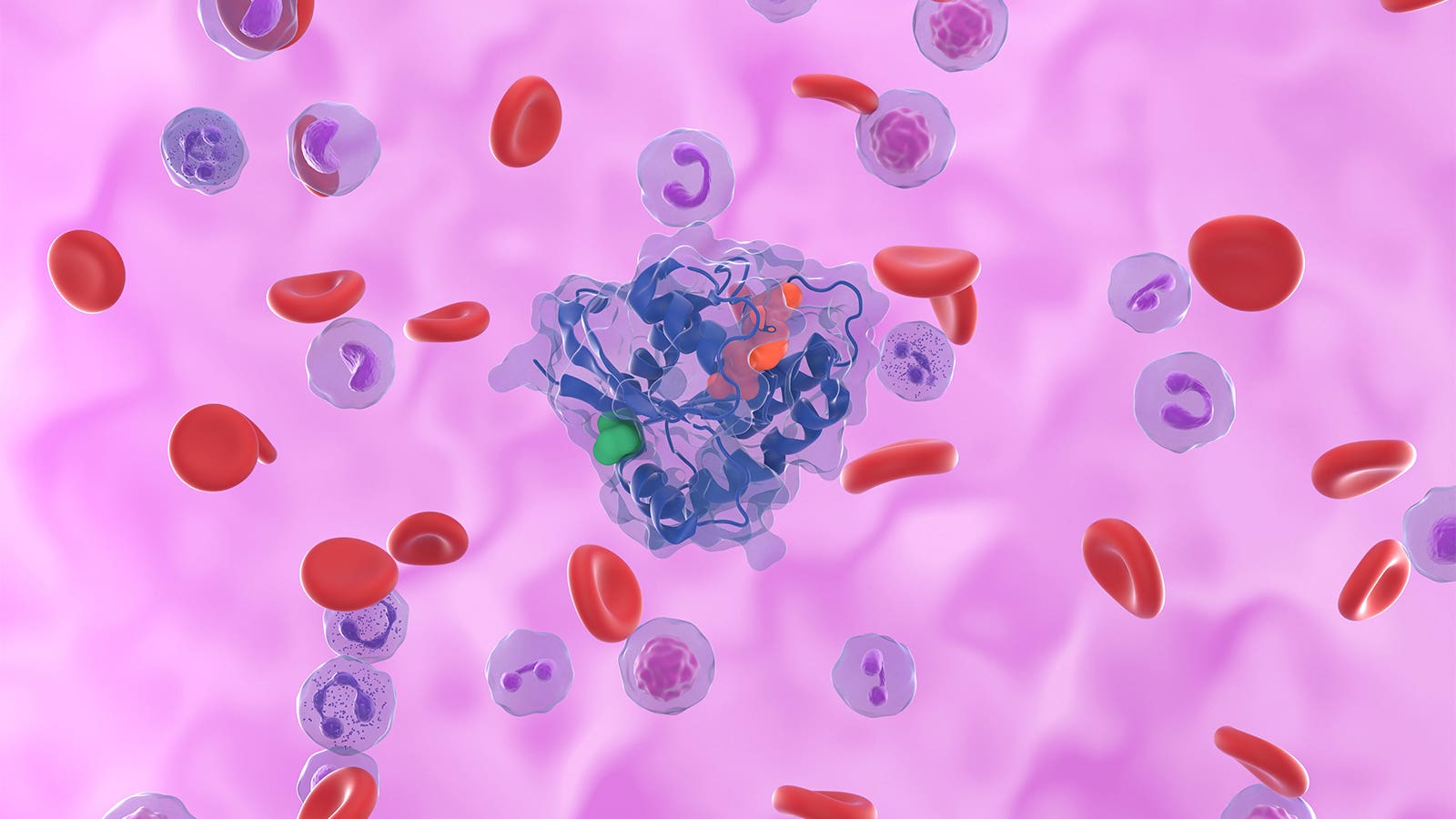KRAS Inhibitor Lowers Cancer Progression Risk in Previously Treated Lung Patients

Improved Progression-Free Survival with Adagrasib in KRAS G12C-Mutated NSCLC
A recent phase III trial, KRYSTAL-12, has demonstrated that adagrasib (Krazati) significantly improves progression-free survival (PFS) in patients with KRAS G12C-mutated non-small cell lung cancer (NSCLC) who have previously undergone treatment. The study compared adagrasib to docetaxel, a standard chemotherapy drug, and found notable differences in outcomes.
In the intention-to-treat population, the median PFS was 5.5 months for patients receiving adagrasib, compared to 3.8 months for those on docetaxel. This represents a hazard ratio of 0.58, indicating a substantial reduction in the risk of disease progression. The results were reported by Tony Mok, MD, from the Chinese University of Hong Kong, and his colleagues in The Lancet.
The objective response rate (ORR) also showed significant improvement with adagrasib. It was 32% compared to 9% with docetaxel. Specifically, three complete responses and 93 partial responses were observed in the adagrasib group, while only 14 partial responses were noted in the docetaxel group. The median duration of response was 8.3 months for adagrasib and 5.4 months for docetaxel.
These findings confirm earlier results from the KRYSTAL-1 trial, which supported the accelerated or conditional approval of adagrasib for patients with previously treated KRAS G12C-mutated advanced NSCLC. The researchers emphasized that adagrasib is an effective treatment option for this patient population after disease progression on prior chemotherapy and immunotherapy.
Although overall survival data were not yet mature at the time of the analysis, the efficacy of adagrasib was consistent across various patient subgroups, including those with brain metastases at baseline. The intracranial ORR was 24% with adagrasib and 11% with docetaxel.
Comparative Efficacy with Other KRAS-Directed Therapies
In a commentary accompanying the study, Egbert F. Smit, MD, and Anne-Marie C. Dingemans, MD, PhD, highlighted that the efficacy outcomes align with those seen in the CodeBreaK 200 trial. In that study, sotorasib (Lumakras), another KRAS-directed therapy, showed a median PFS of 5.6 months compared to 4.5 months with docetaxel.
The authors noted that while KRAS-directed therapies have brought modest but tangible progress for patients with advanced NSCLC, further improvements are expected through ongoing studies, particularly combinations with chemo-immunotherapies.
Trial Design and Patient Characteristics
The KRYSTAL-12 trial involved 230 centers across 22 countries. Patients were randomly assigned 2:1 to receive either adagrasib twice daily orally or docetaxel every three weeks intravenously. The trial ran from February 2021 to November 2023.
At the time of data cutoff, 37% of patients were still on adagrasib, and 11% were still receiving docetaxel. The median treatment duration was 3.9 months for adagrasib and 2.7 months for docetaxel. Overall, 25% of patients in the adagrasib group and 45% in the docetaxel group received subsequent anti-cancer therapy. Additionally, 29% of patients crossed over from the docetaxel group to the adagrasib group after confirming disease progression.
Safety Profile and Adverse Events
Safety data showed that grade ≥3 treatment-related adverse events occurred in 47% of patients treated with adagrasib and 46% with docetaxel. Common adverse events included alanine aminotransferase increases, aspartate aminotransferase increases, and diarrhea in the adagrasib group. In the docetaxel group, the most common were decreased neutrophil count, neutropenia, and asthenia.
Dose reductions, dose interruptions, and treatment discontinuations due to adverse events occurred in 48%, 59%, and 8% of patients in the adagrasib group, respectively. These figures were 24%, 19%, and 14% for the docetaxel group. Four treatment-related deaths were reported in the adagrasib group, and one in the docetaxel group.
Implications for Future Research
Mok and colleagues noted that the efficacy of docetaxel in this study was similar to previous trials, but they emphasized that the treatment landscape for advanced NSCLC has evolved. They suggested that docetaxel may no longer be an appropriate comparator for future KRAS G12C inhibitor studies in this patient population.
The study was funded by Mirati Therapeutics, and the authors disclosed multiple industry relationships, including with Mirati. The editorialists also reported relationships with several pharmaceutical companies and research organizations.
Post a Comment for "KRAS Inhibitor Lowers Cancer Progression Risk in Previously Treated Lung Patients"
Post a Comment